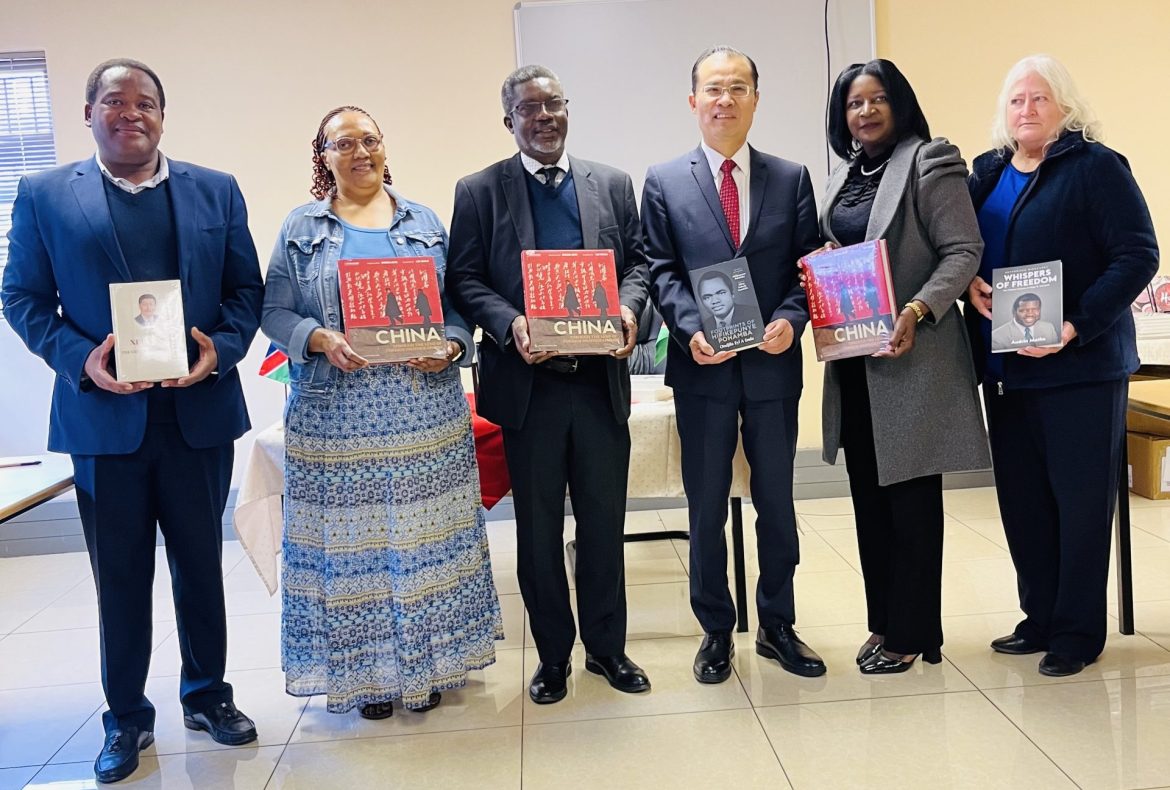WINDHOEK, June 06, The People’s Republic of China has a longstanding commitment to supporting the education sector in Namibia, dating back to before Namibia’s independence.
In an effort to enhance cultural ties and collaboration through literature, the Chinese Embassy in Namibia donated 174 books to the National Library of Namibia. The handover event took place at the Ministry of Education’s headquarters in Windhoek, attended by officials from both countries. His Excellency Zhao Weiping, the Chinese Ambassador to Namibia, handed over the books, emphasizing the importance of the partnership between China and Namibia.
Ambassador Zhao noted that donating books signifies a commitment to fostering mutual understanding and respect. As Namibians read these texts, they embark on a journey into Chinese culture, bridging gaps between the two nations and fostering improved bilateral relations through the power of literature. He expressed that these materials encourage curiosity and further research, allowing readers to compare different cultural and political frameworks. The donation targets Namibians to spark thought-provoking discussions and promote a comprehensive view of global citizenship.
Erastus Haitengela, Executive Director of the Ministry of Education who received the books, remarked on the value of the book collection, stating that it offers Namibian readers unique insights into Chinese culture, history, and modern advancements. The books serve not only as educational tools but also as a means to encourage dialogue and enhance understanding between the peoples of Namibia and China. Through these efforts, the partnership between the two nations is fortified, reflecting their shared goals of development and collaboration.
China has continued contributing to Namibia’s educational infrastructure by building and donating schools and hostels. They have also awarded hundreds of scholarships, enabling many Namibians to study in China, with some having completed their studies and now contributing significantly to Namibia’s economy.
For students, library patrons, and the public, this new collection presents a unique chance to explore the intricacies of Chinese culture and engage in critical thinking around governance and development that transcends national boundaries.



